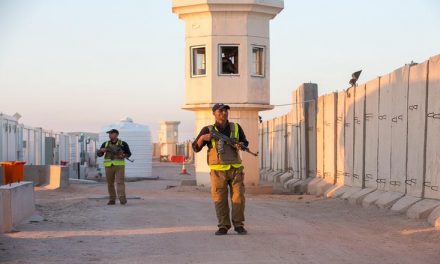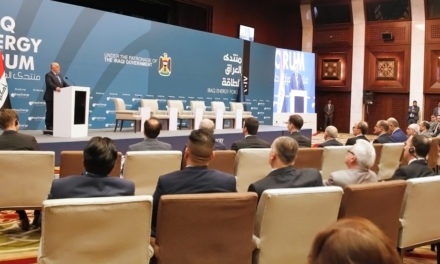The Kurdistan Region of Iraq is holding its election on September 30, 2018 that will decide its future relations with Baghdad and Iraq’s neighbors, Turkey and Iran. The election in this region is characterized by many traits worth examining.
The Kurdish election comes at a critical time. It is the first election after defeating Da’ish, which was threatening to invade the Kurdistan Region. It is also the first election in the wake of the failed Kurdish referendum on independence from Iraq, which was held on September 25, 2017. Furthermore, this election occurs at a time when the leading Kurdish parties, the Patriotic Union of Kurdistan (PUK) and the Kurdistan Democratic Party (KDP), are witnessing many disagreements, such as the competition for the post of the Iraqi president. All this makes the electoral game more complicated.
In a previous election, conducted in 2009, the PUK and the KDP formed a joint political bloc. They managed to win the majority of the parliamentary seats: 59 out of 111. Then, they distributed the essential posts in the Kurdistan Region between themselves. However, that election also introduced a new player with the rise of the Change Movement (Gorran), which won 25 seats. This surprising result enabled the new opposition party to have an active role in the Kurdish parliament. In the 2013 election, Gorran came second, behind the KDP.
Presently, the electoral landscape in Kurdistan has changed dramatically. Though the KDP will not have the parliamentary majority needed to establish the new government in Kurdistan, it is expected that it will win the majority of votes. Its leaders strongly focus on the residents of Erbil and Dohuk. On the other hand, PUK and Gorran are strongly represented in the cities of Sulaymaniyah and Halabja, and while it is anticipated that the PUK will win in these two cities, it will not be a big difference between them and Gorran. Consequently, it is very likely that the PUK and the KDP will reunite after the election to create a coalition that will be responsible with forming the next Kurdish government.
Gorran this time is expected to come third. The Kurdish people, who gave their votes to Gorran in the election of 2013 to punish the two major parties dominating the Kurdistan Region for the past 30 years, are feeling disappointed. They have realized by now that the political equations cannot be easily changed in this part of country. Moreover, they have seen that the opposition is not able to meet their aspirations, as these factions who comprise it have proved to be much weaker than they thought. Hence, the bulk of these people will boycott the election. This undoubtedly will be in favor of the PUK, which will increase its presence in the Kurdish parliament and Gorran may face a new setback similar to the one witnessed in the federal election on May 12, 2018.
The attitude of the Kurdish street is reflected with the opinion of a local taxi driver from Sulaymaniyah. He expressed his opinion about the situation as follows: “I do not see anything good can come out of the government, and I do not see anything positive about any of the parties whether they are Islamic, left wing, right wing or secular. I do not trust any of them.”
As it happens to be, the slogans of these parties are somehow still active and attractive for the youth. For example, Gorran raised this slogan in its electoral campaign: ‘Toward Justice and a servant region’. The New Generation Movement party led by Shaswar Abdul Wahid adopted a sharper motto: ‘The revenge from the traditional families ruling Kurdistan Region’ referring to the Barzanis and Talabanis. The Islamists could also have played an essential role as they are calling for justice and development. However, the Kurdish opposition parties made a mistake when they separately ran for the election. A better strategy would have been if they had combined in one alliance so that they could regain the trust of the citizens.
On the other hand, all the big parties are now relying on young candidates. Some sources confirmed that more than 40% of the nominees are from the young cadres who are taking part in the elections for the first time. The largest number of them are journalists, media stars, and opinion-makers. Parties do not need to allocate more money from the partisan budget to promote them for their electoral campaigns. They are already popular and skilled in attracting and directing the opinion of the people through television channels and social media presence in favor of their parties. In fact, the KDP has heavily resorted to this strategy for getting additional votes with the aim to get more parliamentary seats in order to compensate the political losses it has suffered from in recent years.
The case of Kurdish elections is a clear example of how elections alone do not necessarily lead to a democracy. People in Iraqi Kurdistan fear that this new election will reassert the rule of the same parties, which will result in maintaining the same complications of corruption, nepotism, and will not solve their social and economic problems. Moreover, they are momentarily expressing their concerns that these elites will not change their regional policies, nor will they reach a fair deal with Baghdad to end federal disputes.
In summary, winning the election is not the end of the story. Thus, the ruling Kurdish parties will have to affirm that they respect the positions of the rival parties, and they will not close the parliament because of petty disputes as was the case in 2015. This would be a strong message stating that these parties have new leaders and new opinions to overcome the enormous challenges the Kurdistan Region faces. Otherwise, the election will be just a repetitive page in a miserable novel.

Diyari Salih
Diyari Salih is an Iraqi academic with a PhD in Political Geography, Baghdad and a Post-Doctorate in International Relations, Warsaw, focusing on geopolitical issues in Iraq.










